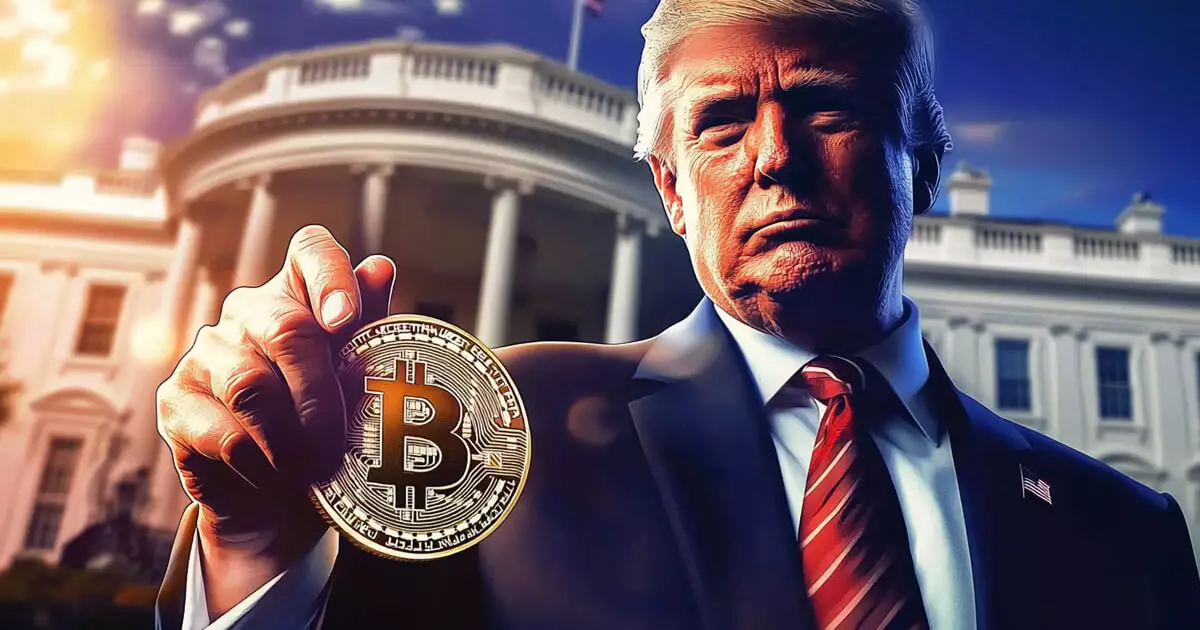The landscape of cryptocurrency regulation in the United States may soon undergo a transformation, especially with the potential appointment of Chris Giancarlo, famously dubbed “Crypto Dad.” Previously the Chair of the Commodity Futures Trading Commission (CFTC) from 2017 to 2019, Giancarlo has a proven track record in navigating the complexities of financial oversight in the digital age. With reports suggesting that the Trump administration is moving towards establishing a “crypto czar” position, Giancarlo appears to be at the forefront of this initiative aimed at revitalizing and guiding the U.S. approach to cryptocurrency policy.
Giancarlo’s advocacy for innovation within financial technology juxtaposes his opposition to the concept of a federal central bank digital currency (CBDC), which aligns closely with former President Donald Trump’s economic perspectives. His unique insights into the blockchain and cryptocurrency sectors have been shaped by years of experience, especially during his leadership of the CFTC, where he oversaw critical developments like the advent of bitcoin futures. This background makes him a uniquely qualified candidate to potentially steer U.S. digital asset policy toward a future that fosters both innovation and investor confidence.
As the role of a crypto czar takes shape, the function of this new position would ostensibly encompass crafting comprehensive regulatory frameworks that would address a variety of cryptocurrencies and stablecoins while supporting American companies operating within this innovative sphere. Trump’s administration has already signaled a clear intention to overhaul cryptocurrency regulations, criticized previously for their rigidity and enforcement-heavy stance under President Biden. By establishing a crypto czar, the government could set a more nurturing groundwork that fosters industry growth and clarifies regulatory expectations.
Industry response to the potential appointment is largely positive, with leaders like Brian Armstrong of Coinbase and Brad Garlinghouse of Ripple expressing support for Giancarlo’s candidacy. His expertise is seen as crucial in navigating the turbulent waters of crypto regulation and helping to alleviate some of the apprehensions that have circulated in the industry regarding government oversight. However, this new governmental role does stir debate among Trump’s advisors, some of whom are wary of introducing additional bureaucracy, especially in light of Trump’s campaign commitment to reduce the size of government institutions.
As discussions progress about the potential establishment of a crypto czar and an associated advisory council, it becomes increasingly evident that this initiative could significantly redefine how cryptocurrencies are perceived and regulated in the United States. While no formal announcement has been made regarding the establishment of this position or the advisory group, figures within the crypto sector are hopeful that Giancarlo’s leadership could represent a turning point towards clearer regulations that promote innovation rather than stifle it.
Ultimately, if Giancarlo is appointed as the first crypto czar, it could not only reshape the regulatory landscape for digital assets but also mark a pivotal moment in the evolution of financial technology and its place in the U.S. economy. The stakes are high, and the crypto community is closely watching as these developments unfold, curious about the direction U.S. policy may take under Giancarlo’s potential stewardship.















